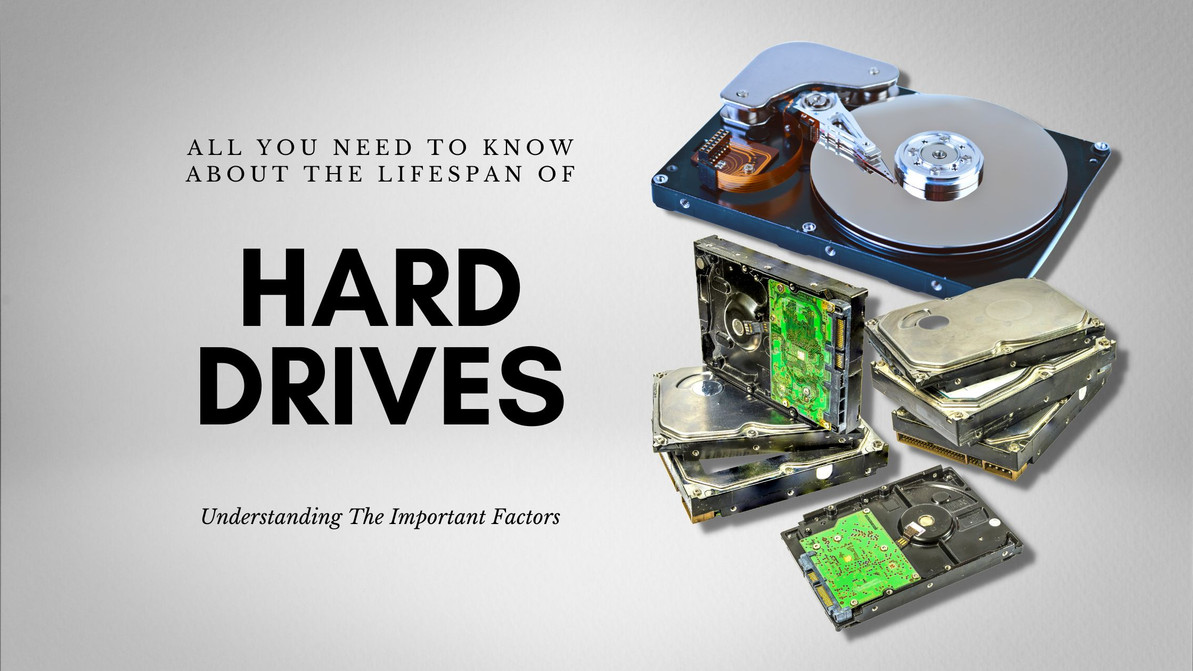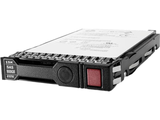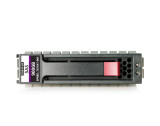Hard Drive Lifespan: All You Need To Know
Your computer's hard drive is one of its most important components. Your data, documents and personal information all live on its spinning platter; for that reason it’s essential to understand when the time may come to replace your hard drive. In this blog post we'll discuss what factors can impact a hard drive's lifespan, how long you can expect yours to last, and the symptoms that suggest it may be getting close to replacement time.
No matter how much knowledge you may have regarding computers or technology in general – understanding these points is key! So read on if you want to learn more about what affects how long your hard drive will last and knowing when it needs replacing.
What is a Hard Drive?
A hard drive is an essential feature of a computer's storage system. It is a non-volatile storage device, meaning that its contents remain even when power is not available. Generally, hard drives are made up of several spinning magnetic disks known as platters and the capacity typically ranges from tens of gigabytes to multiple terabytes. This mechanism allows for quick access to a variety of digital resources stored on the disk and it can be used for both archiving large amounts of data as well as running an operating system or software. Hard drives have become an integral part of most computers, allowing them to function with vast amounts of input/output, making memory retrieval convenient and efficient.
How Does Hard Drive Work?
Hard drives are essential components to any computer - storing both operating system and user data, without it computers would be unable to function. In a hard drive, information is written to physical rotating disks known as platters using magnetic fields generated from a read/write head.
As the disk rotates, the head can either read or write data on the magnetic surface depending upon the operation that is being performed. The disk surface is divided into concentric tracks and sectors which divide up sections of the disk for operation purposes. All this happens extremely quickly ensuring efficient access times and optimal CPU utilization.
Hard drives continue to increase in capacity over time, so they are able to store more data than ever before.
The Lifespan of a Hard Drive
There is no definite answer to how long a hard drive will last, as it depends on how you use and store it. Generally speaking, the average lifespan of a hard drive ranges from four to eight years.
You can extend your hard drive lifespan by frequently backing up your data, storing your drive in a cool or controlled environment, and avoiding physical shocks or extreme temperatures.
Furthermore, specific models or brands may have different lifespans based on the design and what type of parts were used in its assembly.
Ultimately, if you take care of your hard drive and back up your data regularly, you can definitely get the most out of its expected lifespan.
Effective Tips On How to Extend the Lifespan of Your Hard Drive
Taking care of your hard drive is one of the simplest yet most effective ways to ensure that it will serve you for as long as possible.
Here are the best ways to maximize your hard drive time:
1. Update Your Firmware
Keeping your hard drive in tip-top shape is essential for ensuring that data is properly stored and processed. One of the best ways to maintain the integrity of a hard drive is by updating the firmware frequently.
Firmware updates can help by fixing bugs that may have been caused by earlier versions and adding extra security measures. They also offer new functionalities that may have been unavailable with past versions. Updating your firmware can extend the life of your hard drive and make sure it functions at its best, so don’t wait - stay up-to-date with your firmware upgrades!
2. Enable TRIM
Enabling TRIM on your hard drive can have a lasting impact on its useful lifespan. TRIM is a command that prompts the operating system to identify which sectors of the drive are no longer in use and mark them as such, allowing new write requests to happen to empty sectors first. This is important because over time, raw data begins to wear out the available storage blocks, leaving them less and less effective with each write.
By clearing out unused sectors consistently through the TRIM feature, it becomes easier for the operating system to work with and therefore more efficient, extending the life of your hard drive and preventing potential damages that could occur when writing to worn-out sections of the drive. In other words, enabling TRIM has many advantages that protect your hardware from damage and should not be overlooked when looking after your devices.
3. Avoid Wiping the Drive
Taking extra steps to protect your hard drive and prolong its life is important; for instance, an easy way to help preserve a hard drive's life span is by not wiping the disk. For those who may be unfamiliar with this term, wiping the disk means restoring the computer back to its default settings, effectively erasing all prior data on the device.
Formatting a hard drive also falls under this category. Avoiding reformatting or completely purging data from your hard drive is one of the most effective ways to extend its life.
In addition to extending the longevity of your hard drive, not wiping it also helps maintain an efficient system performance, as files remains intact and readily available for use over time. Taking a few simple steps such as these can save users time and money down the line, so leave that wipe command off your list of routine maintenance tasks.
4. Move Cache Folder to RAM Disk
Moving your cache folder to a RAM disk can be a great way to improve the performance of your system and extend the life of your hard drive. A RAM disk is a virtual storage device that uses random access memory instead of writing files to a physical storage drive.
This means that it can work faster than an SSD or regular HDD, and the speed increase is most noticeable when you're running programs or tasks that require frequent file I/O operations, like gaming and video rendering.
Moving your cache folder to a RAM disk reduces wear on your hard drive, while also reducing latency in workloads as there is no need to access the physical disk. All in all, if you want to keep your hard drive healthy and make sure that it runs optimally for longer than usual, consider moving your cache folder to a RAM disk.
Looking for a Reliable Hard Drive? Storage Parts Direct is Here
It is important to know the average lifespan of a hard drive and the different factors that can affect it. With this knowledge, you can take necessary steps to ensure your data remains safe and secure.
At Storage Parts Direct, we have a wide selection of hard drives from top brands. We also offer a variety of storage solutions to fit your needs. Visit our website today to learn more about our products and find the perfect solution for your data storage needs.
Recent Posts
-
Powering Enterprise Workloads: HPE 900GB 15K RPM SAS-12Gbps Smart Carrier Drive for ProLiant Gen9 & Gen10
In today’s demanding enterprise IT environments, businesses require high-performance, reliable …Mar 3rd 2025 -
Unleashing Enterprise Power: HPE 900GB 10K RPM SAS-12Gbps HDD for High-Performance Storage
In enterprise storage solutions, reliability, performance, and scalability are crucial factors. The …Mar 2nd 2025 -
Power, Speed, and Reliability: The HPE 600GB 15K RPM SAS Drive for Enterprise-Grade Storage
Introduction In today’s fast-paced digital world, businesses require reliable, high-speed, and …Mar 1st 2025




